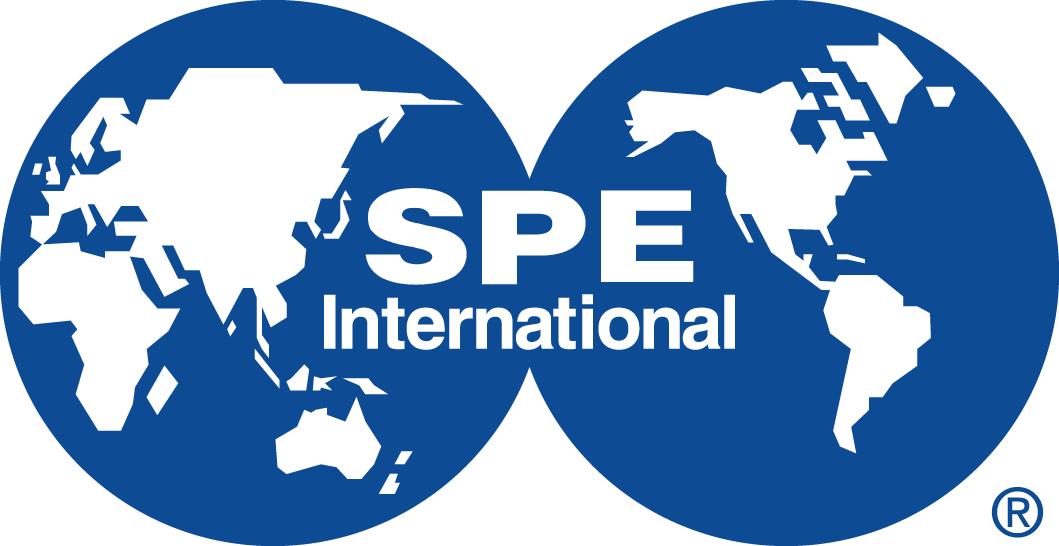Technical Program
-
Corcovado Foyer55 mins
-
Corcovado 3/4/55 mins
-
Corcovado 3/4/560 minsPanel Objectives:
Inspire Workshop Participants: Engage and motivate attendees with innovative ideas and transformative perspectives about the technology.
Share Executive Insights: Provide a platform for the exchange of strategic experiences and guidelines, fostering enriching dialogue among industry leaders.
Highlight Challenges and Opportunities: Analyze key challenges, constraints, and outcomes, while exploring future trends and the potential of intelligent completion technologies.Speakers:
- Bruno Moczydlower, LIBRA Executive Manager, Petrobras
- Ives Loretz, VP Technology Development - Production Systems, SLB
- Srihari Balasubramanian, Senior Director of Technology, Completion Tools, Halliburton
- Marcos Coradini Tolfo, Well Engineering General Manager, Petrobras
-
Corcovado 3/4/590 mins
Chairs: Suresh Jacob, Aramco; Edgar Romero, ExxonMobil; Shaun Arnold, ExxonMobil
This session will provide attendees with a review of the fundamental concepts behind passive and active flow control techniques, examining how these technologies optimize well production, manage reservoir pressure, and enhance recovery efficiency. The discussion will highlight the key differences between Inflow Control Devices (ICDs), which passively balance flow, Interval Control Valves (ICVs), which enable dynamic and real-time control of wellbore fluids, and Autonomous Inflow Control Devices (AICDs), which perform real-time dynamic control autonomously downhole. Through technology description and case studies this session will equip participants of all levels of experience with the basic knowledge of downhole flow control to identify differences between various flow control systems, selection criteria for each of these systems and an overview of the technologies to get the most out of this Integrated Intelligent Well Completion Workshop.
Presentations:
- Strategic Selection of Inflow Control Technologies for Optimized Well Performance
Sule Gurses, SLB - A Decade of Case History and Evolution in Electro-Hydraulic Intelligent Completions: From Passive Electronics to Advanced Multi-Chip Modules
Jonathon Joubran, Halliburton - Next Generation Inflow Control Technologies: Enhancing Well Performance and Value Creation
Lene Amundsen and Geir Elseth, Equinor
- Strategic Selection of Inflow Control Technologies for Optimized Well Performance
-
Corcovado Foyer30 mins
-
Corcovado 3/4/590 mins
Chairs, Marcelo Curzio Salomão, Petrobras; Leonardo Carvalho, Shell
This session aims to discuss the best approaches in quantifying the economic value of Interval Control Valves (ICVs) installation in offshore development projects. In this context, it is necessary to define how to represent the performance of valves in the reservoir numerical simulation models. The potential for failures, denoted by the probabilistic reliability of the valves, may be estimated through historical data, and must be included in the workflow of modeling, if the target is reliable economic estimation. Also, the quantification of the gains obtained from the ICV operation can provide the necessary support to facilitate the decision making for the acquisition and valves installation, for the improvement of installation routines, and for the efforts to increase reliability.
Presentations:
- Intelligent Well Completion Valuation: How Optimization Tools Unlocked Value in Brazil's Pre-Salt Fields Over the Last Decade
Diego Felipe Barbosa de Oliveira, Petrobras - Including ICV Operation in Production Forecast Considering Valve Reliability
Ricardo Doria Loyola Camorim, Petrobras - Model-Based Optimization of ICV Control for Producer and Injector Wells
Denis Schiozer, UNICAMP
- Intelligent Well Completion Valuation: How Optimization Tools Unlocked Value in Brazil's Pre-Salt Fields Over the Last Decade
-
Corcovado 1/290 mins
-
Corcovado 3/4/590 mins
Chairs: William Alves, Halliburton; Stephen Dyer, SLB
IWCs have been used since the late 1990's. Given the extensive variety of applications what are the experiences good and bad from the past that can inform the future? What are the leading and lagging key performance indicators from OEM’s and Service Provider’s perspective that aid front end engineering design?
Reliability starts with design against well defined requirements. Like many completion technologies, IWCs have seen a proliferation in qualification standards with the aim to imitate and derisk their adoption in the field. Several attempts have been made to "standardize" the standards with AWES spurning the API's 19ICV and 19E. Have these efforts changed the perception and experiences of IWC reliability, and what can we learn from the various bespoke qualification requirements to lower some of the barriers of entry whilst improving adoption. How are real world scenarios converged to the qualification requirements that are focused on design reliability?
Digital connectivity has promised much in simplification and visibility of the subsurface, but can we or have we captured its benefits in assuring reliability in the real world to bring confidence in utilization? Data residency, access, security and the role of OEMs beg the question are we missing out on taking this next step in reliability. What are the experiences in health monitoring, root cause analyses, remedial action and prognostics that might effect this?
Advancement in hybrid electronics to convert hydraulic actuators into electro-hydraulic or electro-mechanical systems have simplified IWC deployment, provided more flexibility, and expand the health data flow by an order of magnitude. What are the current experiences and thoughts towards the future in using this new level of data in assuring uptime, reliability and useability within the Production lifecycle?Presentations:
- Historical Review of ICVs Reliability in Pre-Salt Wells: Learnings and Insights
Manoela Teixeira and Eduardo Schnitzler, Petrobras - All Electric Capex and Opex Benefits
Alan McLauchlan, Halliburton - Electric System Reliability
Yulin Pan, SLB
- Historical Review of ICVs Reliability in Pre-Salt Wells: Learnings and Insights
-
Corcovado Foyer30 mins
-
Corcovado 3/4/590 mins
Chairs: Clifford Allen, Halliburton; Caio Nascimento Cisneiros, Petrobras
Efficient technology adoption and utilization for life of well service encompasses five key stages: Application concepts development, planning and procurement, Implementation , operations, optimization and decommissioning. This session will review best practices associated with these stages for the efficient use of intelligent completions.
Presentations:
- First Heavy Workover in a Pre-Salt Well with Intelligent Completion: What Have We Learned?
Roger Savoldi Roman, Petrobras - Deploying Intelligent Completion in Deep Water High Rate Gas Wells – What Are the Challenges for Well Architectures and Installation
Corrado Giuliani, bp - IWC Operational Aspects in Subsea Wells
Eduardo Schnitzler and Roger Savoldi Roman, Petrobras
- First Heavy Workover in a Pre-Salt Well with Intelligent Completion: What Have We Learned?
-
Corcovado 1/290 mins
-
Corcovado Foyer60 mins
-
Corcovado 3/4/590 mins
Chairs: Fernando Kirnbauer, Baker Hughes; Marco Fernandes, Shell
Technology standardization involves establishing consistent protocols, standards and interfaces across different technologies, platforms, and organizations to promote compatibility, efficiency, and scalability. Standardization is crucial, but it comes with significant challenges, such as diverse stakeholders interest, rapidly evolving technology, global and regional regulations, interoperability across platforms and vendors, intellectual property and patents, security and privacy concerns and cost and complexity of implementation.
Presentations:
- Interdependencies Introduced by the Evolution of IWC
Kjetil Øien Borgersen, Halliburton - Unlocking Electric Completions Through Dedicated Subsea Interfaces
Eduardo Schnitzler, Petrobras - IWIS 2.0: Standardising and enabling Electric Completions Innovation
Graham Hardie, Baker Hughes
- Interdependencies Introduced by the Evolution of IWC
-
Corcovado Foyer30 mins
-
Corcovado 3/4/590 mins
Chairs: Gabriel Isaicu, bp; Krishna Trisal, SLB; Juliana Padrao, TotalEnergies
With the recent uptick in the development and adoption of electric completion equipment there is a need to better understand the challenges, solutions and track record of electric downhole completion equipment. This may include benefits and challenges (especially for subsea applications), de-risking approaches and methodologies for new technologies as well as field results of this type of equipment.
Presentations:
- Innovative Multitrip Method for All-Electric Intelligent Multilateral Completions in Extended-Reach Wells
Alain Warden and Thomas Wakerley, SLB - Presalt Downhole Electrification Program
Manoel Feliciano da Silva Junior, Petrobras - Smart Well Production Experience on Heidrun
Ove Andre Kvandal, Equinor
- Innovative Multitrip Method for All-Electric Intelligent Multilateral Completions in Extended-Reach Wells
-
Corcovado 1/290 mins
-
Corcovado 3/4/5120 mins
Chairs: Lars Vinje, Equinor; Bas Wolters, Weatherford
This session will present examples of well design concepts and experiences from installation and start-up along with elements in the planning process.
Presentations:
- 250 Intelligent Completions Installations in Presalt Wells: The Evolution
Davi Valle Ferreira, Petrobras - Designing Flow Control Valves (FCVs) for Intelligent Well Completions in the Sakarya Offshore Gas Field and Their Operability
Samet Ekinci, Turkish Petroleum Offshore Technology Center - Smart Completion in Bacalhau Field: Challenges During Qualification and Well Planning
Renata Zimbres and Laurence Costa, Equinor - System Engineering Recommendations to Improve Intelligent Completions
Jonathon Joubran, Halliburton
- 250 Intelligent Completions Installations in Presalt Wells: The Evolution
-
Corcovado Foyer30 mins
-
Corcovado 3/4/590 mins
Chairs: Michael Scott, Emerson; Manoel Feliciano da Silva Junior, Petrobras
As electrification in Intelligent Well Systems increases so does the need for new monitoring and automation technologies. Topics will include new sensors and interpretation, system surveillance and integrity management, remote and automated operations, and cyber security. General discussions in electrification, prognostics, and speed of implementation will also be covered.
Presentations:
- Well Surveillance System
Jorel Lopes Rodrigues dos Anjos, Petrobras - Continuous Flow Rate Allocation In Industry First Subsea Reentry Multilateral Wells
Claudio Cannone, Vår Energi ASA / ENI S.p.A. and Ximena Guerrero, SLB - The First Data-Driven Well Flowback with Advanced Completion Technology for Major Middle East National Oil Company
Igor Bulygin, SLB
- Well Surveillance System
-
Corcovado Foyer60 mins
-
Corcovado 3/4/590 mins
Chairs: Ricardo Huntemann Deucher, Petrobras; Herbert Lescanne, TotalEnergies
This session addresses the use of flow control and reservoir monitoring technologies to optimize production. Topics of interest are: challenges related to data integration and flow control optimization, decision making considering uncertainties and multiple realizations, and optimization methods and processes.
Presentations:
- Carbonate Oil Rim Production Strategies Using Cloud-based Optimization of Electric Interval Control Valves (eICVs) with Continuous Chokes
Emilio Coutinho, Petrobras - Enhancing Ultimate Recovery in Mature Fields with Multilateral Technology and Intelligent Branch Control
Clifford Allen, Halliburton - The Role of ICVs in Reservoir Management and Production Optimization
Deyvid Debastiani, TotalEnergies
- Carbonate Oil Rim Production Strategies Using Cloud-based Optimization of Electric Interval Control Valves (eICVs) with Continuous Chokes
-
Corcovado Foyer30 mins
-
Corcovado 3/4/590 mins
Chairs: Pedro Aranha, Petrobras; Sergio Sousa, Halliburton
This session will explore the application of data analytics techniques and software tools in production optimization and the system operation, emphasizing the use of AI and machine learning (AI/ML). Attendees will gain insights through case studies and practical examples, demonstrating how these technologies can drive efficiency and innovation in production processes.
Presentations:
- Experiences Applying Data Science to the Data From the 12-Zone Smart Well
Marcel Andre Grubert, Halliburton - Achieving Autonomous Intelligent Well Completion Operations through Digital Twin Development with Hybrid Models
Varma Gottumukkala, SLB - Machine Learning-Based Soft Sensors for Reliable Bottom-Hole Pressure Estimation in IWC Wells
Mateus de Araujo Fernandes, Petrobras
- Experiences Applying Data Science to the Data From the 12-Zone Smart Well
-
Corcovado 1/290 mins
-
Corcovado 3/4/5120 mins
Chairs: Sigurd Myge Erlandsen, Equinor; Fernando Salatiel de Oliveira, Petrobras
This session will focus on field cases showing the benefits of applying intelligent well completions in specific assets. It will further aim at showing the way forward addressing technology gaps to achieve the desired results and future opportunities.
Presentations:
- Innovative Inflow Control Strategies for Reduced Water Production at the Breidablikk Field
Knut Arild Nilsen, Equinor - Intelligent Completions in Búzios Field: Extracting Value from Flexibility
Elizabeth Maier, João Paulo Carneiro de Assis, Paulo Roberto da Motta Pires and Raphael Monteiro Pereira da Silva, Petrobras
- Value Creation with the Manara System on the Edvard Grieg Field
Sarah Shariff, AkerBP - Hydraulic and Electric Downhole Wet Mate Connection for Multi Stage Pre-Salt Completions
Thomas Wakerley, SLB
- Innovative Inflow Control Strategies for Reduced Water Production at the Breidablikk Field
-
10 mins

